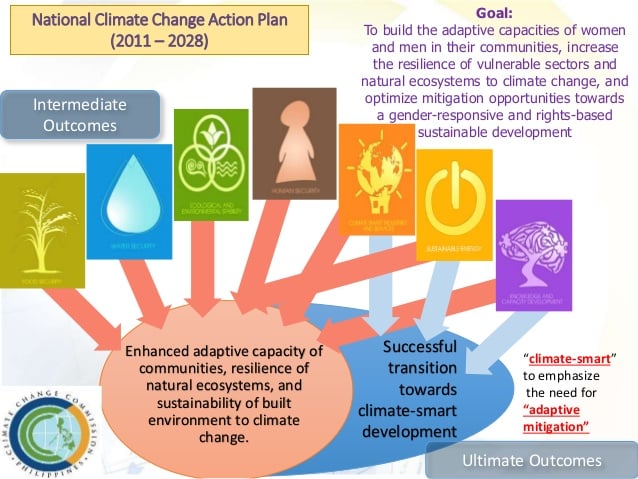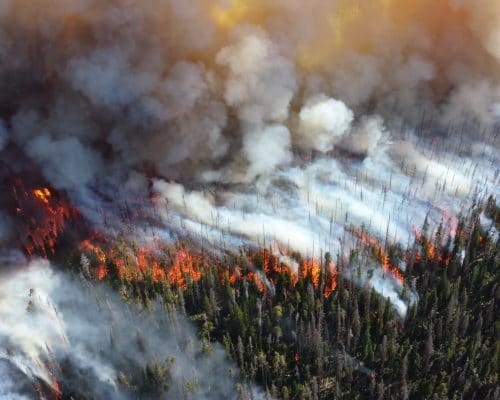Climate Change Laws And Policies In The Philippines
Source: LiCAS
27 June 2024 – by Eric Koons
Climate change laws in the Philippines play an important role in addressing the country’s current and future climate impacts. They also impact the Philippines’ renewable energy policy. The Philippines contributes 0.35% of the world’s total greenhouse gas emissions, yet it is the 17th most affected country by climate impacts. The country faces severe consequences, such as increased extreme weather events, rising sea levels and declining ocean ecosystems.
The country’s action against climate change is critical in limiting these regional and global impacts. This will largely depend on policy, which must support the shift away from environmentally damaging practices and adaptation strategies.
What Is the Philippines’ Climate Change Agreement?
In recent years, the Philippines has started taking steps to address climate change through various agreements and commitments. At the international level, the country is an original signatory to the Paris Agreement, which aims to keep global warming below 1.5oC, with full decarbonisation and renewable energy production by 2050. Its recently updated National Determined Contribution (NDC) targets a 75% emissions reduction by 2030. However, this goal is conditional upon international support of climate finance, technologies and capacity development. Only 2.71% of this reduction is not tied to international aid.

What Is the Climate Change Strategy in the Philippines?
The Philippines’ climate change strategy encompasses both mitigation and adaptation efforts. The country recognises the need to reduce emissions while also enhancing resilience to climate impacts. This dual approach was initially reflected in its National Framework Strategy on Climate Change (NFSCC) and the National Climate Change Action Plan (NCCAP).
The NFSCC ran from 2010 to 2022 and served as the overarching blueprint for climate action, emphasising sustainable development and disaster risk reduction. The NCCAP, on the other hand, is still active until 2028 and outlines specific adaptation and mitigation actions. It focuses on seven strategic priorities: food security, water sufficiency, ecosystem and environmental stability, human security, climate-smart industries and services, sustainable energy and knowledge and capacity development.

More recently, the country adopted its National Adaptation Plan (NAP) to address climate adaptation until 2050. The plan doesn’t provide specific adaptation approaches but instead provides a framework to integrate and develop national and regional adaptation strategies. It aims to achieve this by identifying high-risk areas in the country, providing guidance on integrating adaptation considerations and aligning national strategies with international commitments.
Laws About Climate Change in the Philippines
To support the country’s goals, the Philippines has previously passed and is in the process of passing climate change-focused laws. While not nearly an exhaustive list, a few of the most important are listed below.
The Philippine Climate Change Act
The Philippine Climate Change Act took effect in 2009 and was the country’s first legislation that laid the foundation for the country’s climate policy framework. The act acknowledges that the country is highly at risk due to climate change, and adaptation is necessary. It established the Climate Change Commission, which coordinates, monitors and evaluates climate change programs and action plans. Furthermore, it mandates the integration of climate change in policy creation and development plans, emphasising the need for a cohesive approach to address climate impacts.
The Climate Change Act has significantly shaped climate policy in the Philippines by institutionalising climate action and fostering collaboration among various stakeholders. Establishing the Climate Change Commission has been pivotal in driving the implementation of climate initiatives and ensuring that climate resilience is a national priority.
The Renewable Energy Act
The Renewable Energy Act was implemented in 2008 and was amended in 2022 to allow foreign investment in renewable energy projects. It aims to accelerate the development of renewable energy sources in the Philippines. The act provides various incentives and support mechanisms for renewable energy projects, including tax exemptions, duty-free importation of equipment and financial assistance.
Climate Accountability Bill
In November 2023, the Philippines’ House of Representatives introduced this law, which is still waiting for a vote. If passed, it would be a world first. It seeks to incorporate loss and damage into domestic legislation, providing a legal avenue for affected communities to claim compensation from major polluters.
It mandates a climate change reparations fund, by which victims will receive contributions from industries with significant greenhouse gas emissions. The fund’s goal is to aid in the recovery and rebuilding of communities devastated by climate-related events.
Strengthening Climate Resilience in the Philippines
The Philippines has made strides in developing and implementing climate change laws and strategies. These efforts are crucial in mitigating the impacts of climate change and building resilience among vulnerable communities.
However, ongoing challenges such as funding, resource allocation and effective implementation need to be addressed. Continued support and enhancement of climate policies and initiatives are essential to ensure a sustainable future for the Philippines.
by Eric Koons
Eric is a passionate environmental advocate that believes renewable energy is a key piece in meeting the world’s growing energy demands. He received an environmental science degree from the University of California and has worked to promote environmentally and socially sustainable practices since. Eric’s expertise extends across the environmental field, yet he maintains a strong focus on renewable energy. His work has been featured by leading environmental organizations, such as World Resources Institute and Hitachi ABB Power Grids.
Read more






